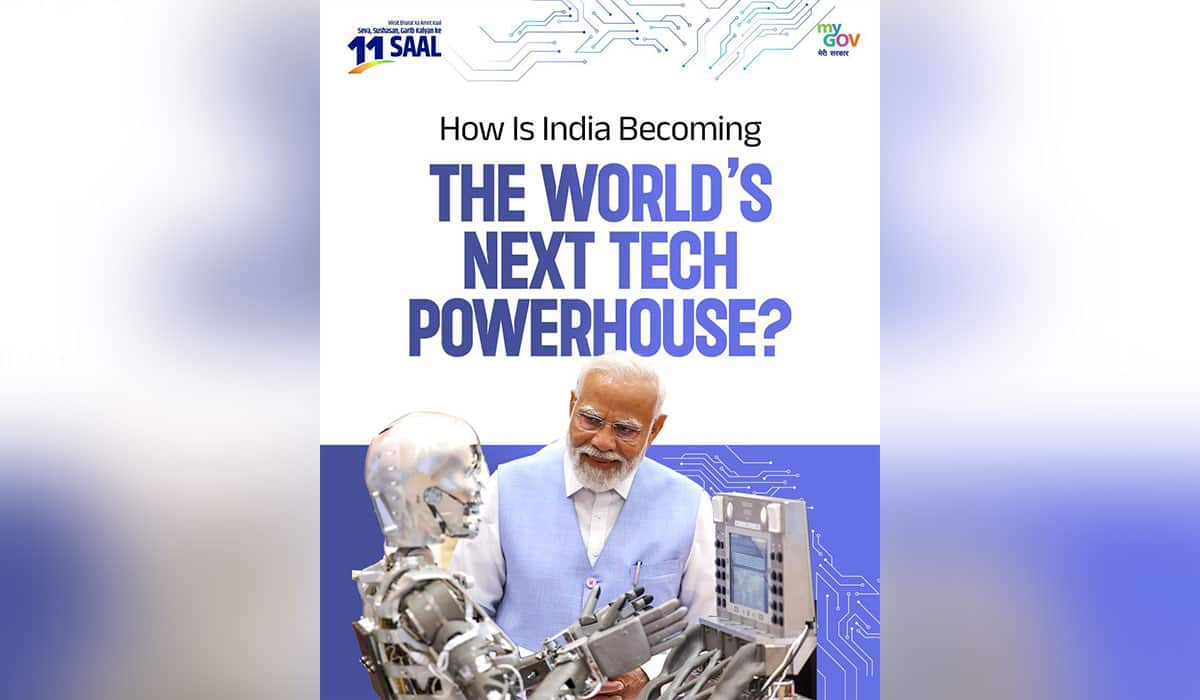Namaskar!
My colleague in the Union Cabinet, Shri Nitin Gadkari ji, Chief Minister of Gujarat Shri Vijay Rupani ji, all the stakeholders associated with the auto industry, all the OEM associations, all the members of the metal and scrapping industry, ladies and gentlemen!
This program, ahead of the 75th Independence Day, is another important step towards fulfilling the significant goals of the self-reliant India. Today the country is launching the National Automobile Scrappage Policy. This policy is going to provide a new identity to the mobility of new India and to the auto sector. This policy will play a huge role in the modernization of the vehicle population in the country and removal of unfit vehicles from roads in a scientific manner. This will lead to a positive change in almost every citizen, every industry and every sector of the country.
Friends,
You all know that mobility is a big factor for the country's economy. Modernity in mobility not only lessens the burden of travel and transportation, but also proves to be helpful in economic development. The 21st century India should move with the goal of clean, congestion-free and convenient mobility and it is the need of the hour. Therefore, the government has taken this step and all the stalwarts of the industry and all the stakeholders have an important role in it.
Friends,
The new scrapping policy is an important part of the waste-to-wealth mission and the circular economy. This policy also reflects our commitment to reduce pollution from the cities of the country and protect the environment while ensuring rapid development. Following the principles of reuse, recycle and recovery, this policy will give new energy to the country's self-reliance in the auto and metal sectors.Moreover, this policy will bring new investmentsworth more than 10,000 crore rupees in the country and will create thousands of jobs.
Friends,
The timing of the program that we launched today is very special in itself. We are about to enter the 75th year of independence. From here onwards, the next 25 years are very important for the country. Many changes are going to happen the way we work, in our daily life and in businesses in the next 25 years. There will be a lot of changes, both in our lifestyle and in our economy, because the way technology is changing. In the midst of this change, it is equally important to protect our environment, land, resources and raw materials. When these rare earth metals that drive technology and that are available today will become rare, it is difficult to say. We can work on technology and innovation in future, but the wealth that we get from Mother Earth is not in our hands. Therefore, on one hand, India is exploring new possibilities through the Deep Ocean Mission, on the other hand, it is also encouraging a circular economy. The effort is to make development sustainable and environment friendly. We are experiencing the challenges of climate change every day. Therefore, India needs to take big steps in its own interest and in the interest of its citizens. With this thinking, unprecedented work has been done in the energy sector in the last few years. Be it solar and wind power or biofuel, today India is joining the leading countries in the world. A huge campaign of Waste to Wealth has been undertaken. It has also been linked to cleanliness and to self-reliance as well. In fact, nowadays, we are using a large amount of waste in the construction of roads. Recycling is also being encouraged in the construction of government buildings and houses for the poor.
Friends,
The automobile sector has also been added to many such endeavors. This policy will greatly benefit ordinary families in every way. The first advantage will be that a certificate will be issued on scrapping the old vehicle. The person who has this certificate will not have to pay any money for registration on the purchase of a new vehicle. Along with this, he will also be given a discount on road tax. The second advantage will be that there will be savings on maintenance and repair costs of the old vehicle andit will also ensure fuel efficiency. The third benefit is directly related to life. The risk of road accidents is very high in old vehicles due to old technology. It will get rid of that. Fourth, it will also minimize the impact of pollution on our health. Importantly, the vehicle will not be scrapped just because it is old. The vehicles will be scientifically tested for fitness at the authorized automated testing centers. If the vehicle is unfit, it will be scrapped scientifically. In this regard, registered vehicle scrapping facilities will be set up across the country and it will be ensured that these are technology driven and transparent.
Friends,
Gujarat has experienced the benefits of formal scrapping, and now Nitin ji has also explained it. Alang in Gujarat is known as the ship recycling hub. Alang is rapidly increasing its share in the world's ship recycling industry. This infrastructure of ship recycling has created thousands of new employment opportunities here. This entire region also has infrastructure and skilled manpower. Therefore, it can also emerge as a big hub for scrapping vehicles after ships.
Friends,
The sector related to scrap will get a new boost in the entire country. There will be tremendous change in the lives of people, especially our workers who are involved in scrapping and small businessmen. This will provide a safe environment to the workers and they will also get benefits like other employees of organized sectors. Small traders dealing in scrap can also act as collection agents for authorized scrapping centres.
Friends,
Auto and metal industry will get a huge boost from this policy. We had to import scrap steel worth about Rs 23,000 crore in the last year alone, because the scrapping in India till now is not productive. Energy recovery is almost negligible, high-strength steel alloys are not fully valued, and precious metals cannot be recovered. Now when there is scientific and technology-based scrapping, we will be able to recover even rare earth metals.
Friends,
Continuous steps are being taken to give impetus to AatmaNirbhar Bharat campaign and make the industry sustainable and productive in India. It is our endeavor that we have to depend on imports as little as possible for the value chain associated with auto manufacturing. But the industry also needs to put in some extra efforts. You should also have a clear roadmap of self-reliant India for the next 25 years. The country is now moving towards clean, congestion-free and convenient mobility. Therefore, the old approaches and old practices have to be changed. Today, India is committed to providing its citizens with global standards in terms of safety and quality. This is the thinking behind the direct transition from BS-4 to BS-6.
Friends,
The government is doing extensive work at every level from research to infrastructure for green and clean mobility in the country. Be it ethanol, hydrogen fuel or electric mobility. The active participation of the industry is very important in these priorities of the government. The industry will have to increase its stake in both R&D and infrastructure. The government is ready to provide whatever help you need for this. We have to take our partnership to a new level. I am sure that this new policy will infuse a new energy, new momentum, and new confidence among the countrymen as well as in the auto sector. I do not believe that the people of the industry will let go of this momentous occasion. I don't believe that people running old vehicles will let go of this opportunity. This is a system that has come with the belief of an enormous change in itself.Today this policy has been launched in Gujarat. Though the word circular economy may appear to be new to Gujarat or to the country, but we all know how our grandmother makes a quilt from our old clothes. And when the quilt becomes old, its cloth is used for mopping after tearing it apart. What is recycling?What is a circular economy?it is not new to India,we just have to take it forward in a scientific way. And if it is taken forward in a scientific way, I am sure everyone will be involved in this campaign to create wealth out of waste and we will be successful in inventing more new things. I once again wish you all the very best. Thanks a lot.




















